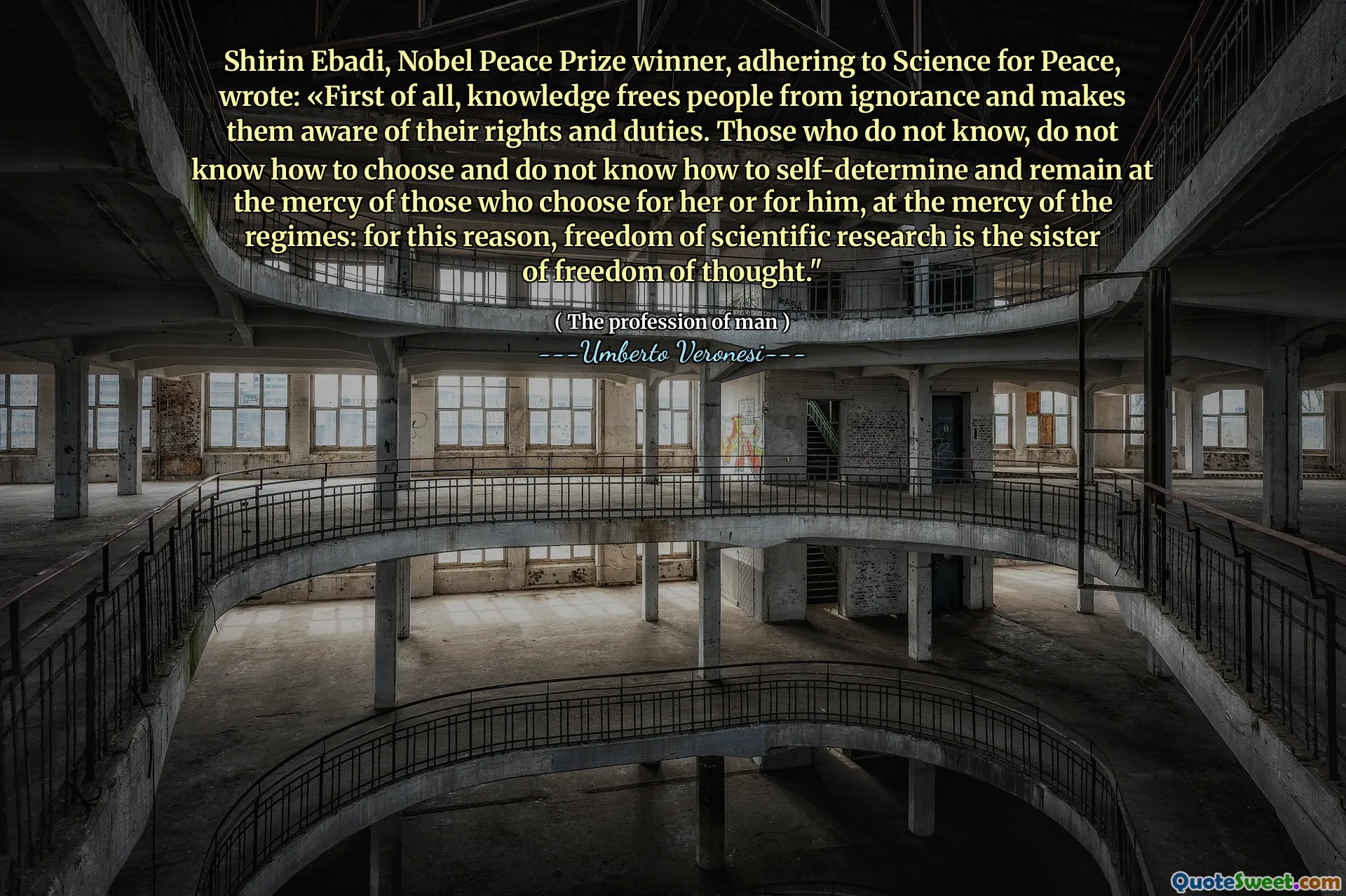
Shirin Ebadi, Nobel Peace Prize winner, adhering to Science for Peace, wrote: «First of all, knowledge frees people from ignorance and makes them aware of their rights and duties. Those who do not know, do not know how to choose and do not know how to self-determine and remain at the mercy of those who choose for her or for him, at the mercy of the regimes: for this reason, freedom of scientific research is the sister of freedom of thought."
Shirin Ebadi, a Nobel Peace Prize laureate, emphasizes the critical role of knowledge in liberating individuals from ignorance. She argues that awareness of one's rights and responsibilities is essential for self-determination. When people lack knowledge, they become vulnerable to being manipulated by those in power, which underscores the importance of education and scientific inquiry in fostering freedom and autonomy.
Ebadi also connects the freedom of scientific research to the freedom of thought, suggesting that they are interconnected. The pursuit of knowledge not only empowers individuals but also serves as a fundamental pillar for a just and equitable society. In her view, promoting scientific freedom is essential for safeguarding personal freedoms and ensuring that people can make informed choices about their lives and governance.






